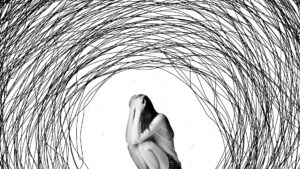Suppose there were a society of powerful female warriors created for the purpose of protecting and saving the world, committed to the ideals of duty, service, and justice. What would it look like? More specifically, what might one young woman raised from birth in that society look like?
In DC’s new feature film, Wonder Woman, she looks like Diana (Gal Godot), a courageous Amazon princess. When she witnesses a plane crash off the coast of her home island, Diana rescues the pilot, Steve Trevor (Chris Pine), and learns from him that a war is raging in the outside world. She’s devastated when some of that war follows him to the island, resulting in the Germans killing her beloved aunt and trainer, Antiope (Robin Wright).
Raised on stories of Ares, the evil god of war, Diana decides that this must be his work and that it’s her mission to destroy him and end the war. Despite her mother’s opposition, Diana accompanies Steve to London and then to the front lines of World War I, where her innocence and strong sense of justice put her in danger even as they guide and inspire everyone around her.
Superhero Epic
The long-awaited Wonder Woman broke the $100 million mark in its opening weekend—and for good reason. Director Patty Jenkins has created a superhero epic that sets a new standard for the genre, and leaves previous iterations like Batman v Superman in the dust—which, let’s face it, wasn’t hard to do. Diana’s superpowered exploits and the multiple battle scenes are expertly crafted and thrilling, and the film’s muted but deep color palette is particularly effective. But the real power of this film lies in the characters and the ideals they pursue, regardless of cost.
In the skillful hands of Jenkins and screenwriter Allan Heinberg, this Wonder Woman is driven by deep compassion, a nearly unshakable sense of right and wrong, and a fierce determination to do her duty. Initially, she sees everything in stark black and white: The war has killed millions and may kill even more; Amazons are supposed to protect people; thus, she must stop the war.
As she and Steve collect a ragtag team to help destroy a poison gas factory, Diana’s views, simplistic as they seem, help to keep everyone on track. The slightest caution or suggestion that nothing can be done to help innocent victims sends her into a rage—and, in one case, directly into No Man’s Land to confront German fire in her iconic costume.
Unexpected Heroine
It’s telling that the good guys in the film quickly come not only to accept Diana, but also to trust and rely on her. This portrayal of Diana’s relationship with the characters around her offers a firm and direct response to those filmmakers, critics, and “thought leaders” who profess to be terribly confused about what women actually want in a heroine. As Christian mystery writer and essayist Dorothy L. Sayers once wrote in an essay titled “Are Women Human?”, “What we ask is to be human individuals, however peculiar and unexpected.”
Leave aside the question of what we see and expect of women in real life. If we posit a world of superpowers and fantasy heroes, it’s not unreasonable to desire to see what a woman would do in that role, and how she might use her own “peculiar” and “unexpected” gifts as something other than a love interest or supporting player.
What women don’t ask—at least, those of us who value and respect both sexes as designed and made by God—is that men be put down to allow that to happen. Here again, the film does an admirable job. Wonder Woman doesn’t pretend that women are incorruptible—one of its worst villains, a mad scientist known as “Dr. Poison,” is a woman (Elena Anaya)—or that all men are corrupt. Diana herself has some things to learn, and it’s one of the film’s great strengths that the men around her are given the chance to help her learn those things.
Steve, in particular, has a relationship of equals with her. Cocky and insouciant as he comes across, he nevertheless has a passion for saving lives, and he sees in Diana that same passion. He tries to protect her until he (quickly) discovers she needs no protection; he then wastes no time fretting about her superior powers, but simply welcomes them as a gift to their cause. The two clash over strategy and occasionally over deep underlying differences in belief, but their respect for each other and their common goal stays strong. Even their growing romance doesn’t get in the way of a solid working relationship. (There’s a suggestion of a bedroom scene, but nothing is shown except a kiss while both characters are fully dressed.)
Battle of the Sexes?
Too much modern discourse about the roles of men and women—including discourse in Christian circles—frames the battle of the sexes as just that: a battle in which one sex must lose. Either empowering women denigrates men, or empowering men denigrates women.
As Christians, we recognize this is a false dilemma. Refreshingly, Wonder Woman does, too. Jenkins’s film appreciates and elevates both men and women. Diana longs to redeem even the most evil people, as when she offers to help a German officer get free from Ares’s control—something that never even occurred to her male associates. But when Diana is finally sickened by the corruption of human beings and about to give up on them, Steve draws her to a deeper and more realistic understanding of humanity’s worth, despite their corruption, and ours.
The superhero stunts are fantastic, but ultimately, for this viewer, they were a sideshow. What’s memorable about this version of Wonder Woman is that women and men both have something to offer for the greater good, and that lifting each other up only makes them stronger.
Free eBook by Tim Keller: ‘The Freedom of Self-Forgetfulness’
 Imagine a life where you don’t feel inadequate, easily offended, desperate to prove yourself, or endlessly preoccupied with how you look to others. Imagine relishing, not resenting, the success of others. Living this way isn’t far-fetched. It’s actually guaranteed to believers, as they learn to receive God’s approval, rather than striving to earn it.
Imagine a life where you don’t feel inadequate, easily offended, desperate to prove yourself, or endlessly preoccupied with how you look to others. Imagine relishing, not resenting, the success of others. Living this way isn’t far-fetched. It’s actually guaranteed to believers, as they learn to receive God’s approval, rather than striving to earn it.
In Tim Keller’s short ebook, The Freedom of Self-Forgetfulness: The Path To True Christian Joy, he explains how to overcome the toxic tendencies of our age一not by diluting biblical truth or denying our differences一but by rooting our identity in Christ.
TGC is offering this Keller resource for free, so you can discover the “blessed rest” that only self-forgetfulness brings.






























